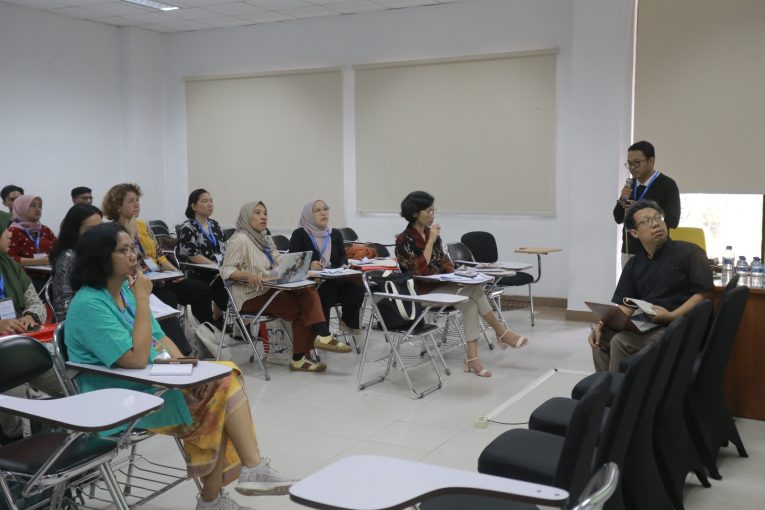
Yogyakarta, November 22nd 2023─The media plays a central role in influencing and shaping people’s perceptions of the world and the things in it. Therefore, it is important for the media to provide a fair and inclusive representation of various issues and parties, including disability issues. Responding to the importance of discussing media issues and their relation to disability issues, the topic was also raised in one of the panel sessions of the International Conference on Disability Rights (ICDR) held on Wednesday (22/11) at Faculty of Social and Political Sciences UGM. Hosted by Budi Irawanto, Lecturer of Faculty of Social and Political Sciences UGM, the 1D panel session with the theme “Communication in Media” was attended by five presenters representing various universities and organizations.
In one of the sessions, M Iqbal Sultan presented the results of his research entitled “Voices Unheard: Inclusive Journalism in Indonesian Election Reporting”. According to his findings, media attention to people with disabilities and their involvement in the election process in Indonesia is still insufficient. This can be seen from the minimal amount of news on the issue during the important stages of the election, from December 2022 to October 2023.
Furthermore, instead of making people with disabilities the main sources in the news, sources from the government actually have the most portion as news sources. This certainly affects the perspective or frame used in the news. “Nevertheless, in general, news coverage on disability issues during this period had a positive tone. The terminology used by journalists is correct,” explained Iqbal.
On the other hand, Nabila Ikrima presented her research on representation in a movie titled “Jingga” which tells the story of a person with a disability who has a talent in playing music. “The film not only portrays the character of a person with a disability with his strength as something positive, but also adds that there are also practices of resistance in marginalized spaces,” said Nabila. However, there are still some gaps in Jingga that give the impression that disability is an unacceptable condition and must be eliminated. In addition, elements that depict dehumanization and alienation can still be felt through the film.
Not only mass media and movies, the representation of people with disabilities through social media is also important to study considering the high level of social media users in Indonesia. With the title “Virtual Influencer with Disability: Representation of Inclusion or Exploitation”, Wa Ode Lusianai examines the representation of Down syndrome identity through Instagram. “The representation of Down syndrome through OUR influencer Instagram account is a paradox,” said Wa Ode. On the one hand, there are aspects of empowering and strengthening. However, the representation carried out has the potential to position them as objects for political interests and also commodities to be exploited, especially for the benefit of capital.
The results of these studies show that although there have been efforts to represent people with disabilities in the media, there are still gaps that must be filled and addressed to realize inclusive representation in the media.
